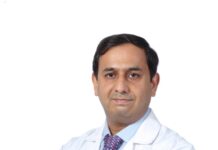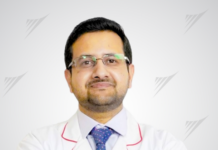New Delhi, March 02, 2018: Union Minister for Health & Family Welfare, Shri J.P. Nadda, in the presence of Union Minister of State (Independent Charge) of the Ministry of Development of North Eastern Region (DoNER), MoS PMO, Personnel, Public Grievances & Pensions, Atomic Energy and Space, Dr Jitendra Singh, inaugurated the one-day Conference to mark “World Rare Disease Day” here today.
A newsletter published by the “Indian Organization of Rare diseases” was also released on the occasion. The conference began with the lighting of the ceremonial lamp for which, the two Union Ministers were also joined by Secretary, Ministry of Health & Family Welfare, Ms Preeti Sudan and President of “Indian Organization for Rare Diseases” (IORD), Dr Ramaiah Muthyala.
Speaking on the occasion Shri J.P. Nadda disclosed that government has formulated a national policy for “rare diseases”. He also stated that the process of preparing a Registry of rare diseases has already been initiated by the Health Ministry.
Shri Nadda assured of full support from the government to provide cost-effective management and investigation facilities for the patients suffering from rare diseases in India. He said, even though the prevalence of such diseases was very low, but the government has constituted a body to focus on this area of healthcare, both directly by the Health Ministry as well as by other agencies affiliated with the Ministry.
Dr Jitendra Singh, while speaking on the occasion, said it is an irony that the “rare diseases” are rarely discussed, but pointed out that the reason for this is that the health providing agencies and healthcare system of this country are preoccupied with more prevalent diseases, while these “rare diseases”, usually of genetic origin or existing from the birth, have a prevalence of hardly about 7%. He said, most of the literature available for these diseases is from Western authors and even the definition was based on Western inferences, like, for example, in USA, a disease was said to be “rare” if it affected less than two lakh population while, in Europe, it was categorized as “rare” disease if it affected not more than 5 persons per 10,000 population. Therefore, he said, there is a dire need of compiling Indian data for these diseases, based on the peculiar epidemiological, phenotype and other factors peculiar to India.
Meanwhile, Dr Jitendra Singh said, in the larger perspective, some of those diseases which were rare in India till about three decades ago, have suddenly become widely prevalent throughout the country.
Dr Ramaiah, while speaking on the occasion, placed a request before the Government for substantial support to carry forward the research and also the lifelong patient care required for these diseases.
Ms. Preeti Sudan presented a detailed account of the various steps taken since 2017 to formulate a comprehensive policy, focusing on “rare diseases” related to genetic disorders, chromosomal disorders or disorders occurring in childhood with lifelong lasting effect.
























